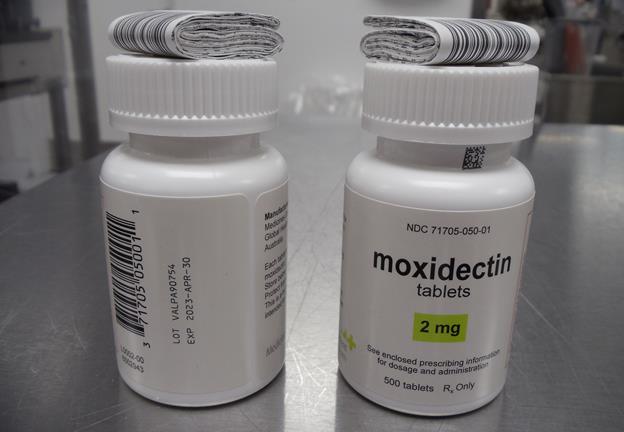Medicines Development for Global Health (MDGH), an Australian biopharmaceutical not-for-profit who researches, develops and delivers new and improved medicines for diseases that disproportionately affect low- and middle-income countries, has announced a major step towards eliminating onchocerciasis, or river blindness.
Caused by the parasitic worm Onchocerca volvulus, river blindness is transmitted from person to person by black flies that breed in fast-flowing rivers, primarily in Africa. The millions of larvae released by the adult parasites invade skin and eyes where they can cause severe manifestations, including permanent blindness, itching and disfiguring skin conditions.
More than 200 million people are at risk of infection and almost all infected people live in 29 African countries.
The World Health Organisation and endemic countries aim to eliminate parasite transmission, currently primarily through mass administration of ivermectin.
Merck has donated Ivermectin to endemic countries for more than 30 years, significantly reducing the disease burden. However, existing elimination programs rely on mass drug administration or community-directed treatment, in which the whole eligible population in endemic areas receives ivermectin, regardless of infection status.
It’s clear that new treatment options are needed to accelerate progress toward eliminating parasite transmission.
Moxidectin is a promising treatment option. The drug reduces skin microfilariae levels more profoundly and for longer than ivermectin and is expected to accelerate elimination of parasite transmission.
MDGH registered moxidectin with the US Food and Drug Administration (FDA) in 2018 — the first new FDA-approved treatment for river blindness in the last 20 years. Modelling suggests that moxidectin could achieve onchocerciasis elimination years earlier compared to ivermectin alone, reflecting over 25 years of work in developing moxidectin for river blindness and other human diseases.
Ghana FDA approves moxidectin
Earlier this month, MDGH announced that the Ghana Food and Drugs Authority (FDA) has now approved moxidectin — the first river blindness-endemic country to grant regulatory approval of moxidectin. This clears the way for a planned community pilot treatment implementation program to begin in January 2025 and marks an important step towards disease elimination.
The trial will take place in the Twifo Atti-Morkwa district, a priority area for moxidectin after higher-than-expected disease prevalence was found following multiple rounds of ivermectin mass administration.
“This approval is the culmination of more than 25 years in the development of moxidectin for the treatment of river blindness and other human diseases,” said MDGH’s Sally Kinrade.
“This is a new model – it is the first time a not-for-profit company has achieved regulatory approval and will deliver a completely novel medicine into an endemic country without the involvement of a multinational pharmaceutical company or generic company partner.”
MDGH will provide moxidectin tablets at cost-plus pricing (without profit) for use in low- and middle-income countries. The group is in discussions with the community of stakeholders that are working to eliminate river blindness to determine how to best use moxidectin to help achieve elimination goals and to inform the potential demand.
For more on MDGH see: Impact investment to advance global health equity.
About Medicines Development for Global Health
MDGH is a not-for-profit pharmaceutical company dedicated to the development and delivery of new and improved medicines for diseases that disproportionately affect people in low- and middle-income countries.
In 2014, MDGH received a license from WHO (which had initiated and led moxidectin development for onchocerciasis through TDR), for all data at its disposal to support the registration of moxidectin and make it available to endemic countries. In 2018, MDGH achieved United States Food and Drug Administration approval of moxidectin for the treatment of river blindness (onchocerciasis), and is currently developing moxidectin for the treatment of several other neglected tropical diseases.
In 2020, the company assumed full responsibility for the development and commercialisation of dovramilast from Amgen for both tuberculosis and leprosy type 2 reaction. Further information is available at www.medicinesdevelopment.com.

